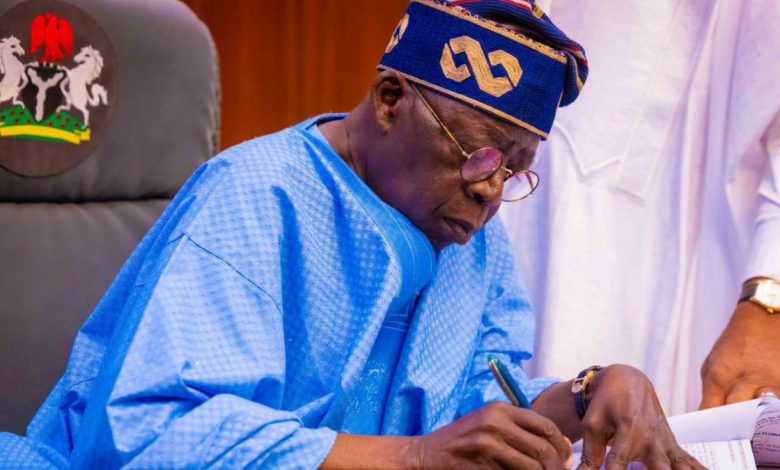Tinubu’s govt secures $6.45bn loan from World-Bank as Nigeria’s debt profile swells
Post By Diaspoint | October 10, 2024

The Federal Government of Nigeria, under President Bola Tinubu, has secured loans totalling $6.45 billion from the World Bank within just 16 months.
This total has surged following the recent approval of three new loans worth $1.57 billion for various development projects nationwide.
The latest loans are part of a broader trend, as the World Bank has approved no fewer than 36 loan requests to Nigeria, amounting to an eye-watering $24.088 billion over the last five years.
These funds address pressing issues such as infrastructure decay, unemployment, and social welfare, yet they raise concerns about Nigeria’s escalating debt profile and the sustainability of such financial commitments.
“While many Nigerians understand the need for borrowing due to limited resources, there is palpable frustration regarding past loans, which have yet to yield visible improvements,” said a concerned citizen.
With infrastructure decay persisting, the new loans for initiatives such as power generation ($750 million), women’s empowerment ($500 million), and girls’ education ($700 million) appear insufficient for addressing the nation’s urgent needs.
The World Bank’s recent approvals include $2.25 billion for economic stabilization and resource mobilization projects, with notable allocations for the Primary Healthcare Provision Strengthening Programme and climate resilience initiatives.
“These projects will significantly enhance human capital and build resilience against climate change, including floods and droughts,” a World Bank representative stated.
An analysis of the World Bank’s lending history reveals that Nigeria received loans worth $6.36 billion in 2020 alone, with subsequent years seeing varying loan amounts.
In 2021, the government secured $3.2 billion for six projects, while $1.26 billion was approved in 2022. The loan requests surged in 2023 to $2.7 billion and reached $3.82 billion in 2024, with more anticipated before year-end.
Read More from original source
